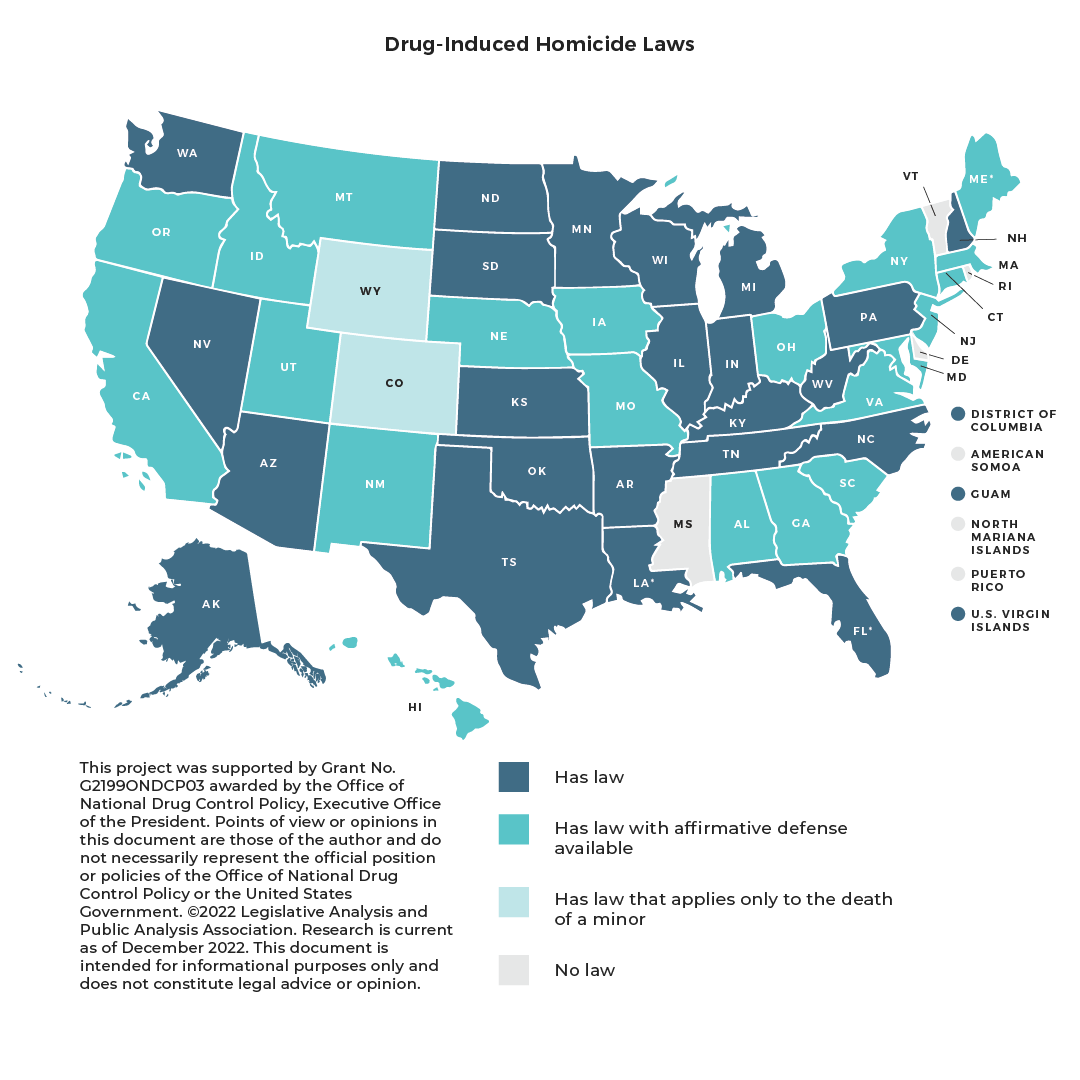911 Good Samaritan Drug Overdose Laws
(and Drug Induced Homicide Laws)
To combat the rising death toll from drug overdoses, 47 state legislatures and the District of Columbia have passed Good Samaritan Fatal Overdose Prevention Laws (Specifically named 911 Good Samaritan Law or Good Samaritan Drug Overdose Laws, not to be confused with the basic “Good Samaritan Law”[1]) to protect bystanders (and people who use drugs) from criminal prosecution if they call for medical assistance during a drug overdose.
Good Samaritan laws offer legal protection to people who give reasonable assistance to those who are, or whom they believe to be injured, ill, in peril, or otherwise incapacitated. The protection is intended to reduce bystanders' hesitation to assist, for fear of being sued or prosecuted for unintentional injury or wrongful death.
Understanding State by State Protections
However, not all Good Samaritan Fatal Overdose Prevention Laws are created equal. Misunderstandings of these laws (when they exist at all), still lead to prosecution or other harms. For example, 30 states, the District of Columbia, Guam, and the U.S. Virgin Islands have an express DIH/DDRD law that could be used to charge someone who delivers a drug that results in an accidental overdose death. The classification of the DIH/DDRD offense varies by state, with examples including manslaughter, classified felony, reckless homicide, and murder. In two states (Colorado and Wyoming), the DIH/DDRD law is limited to the death of a person under the age of 18.






